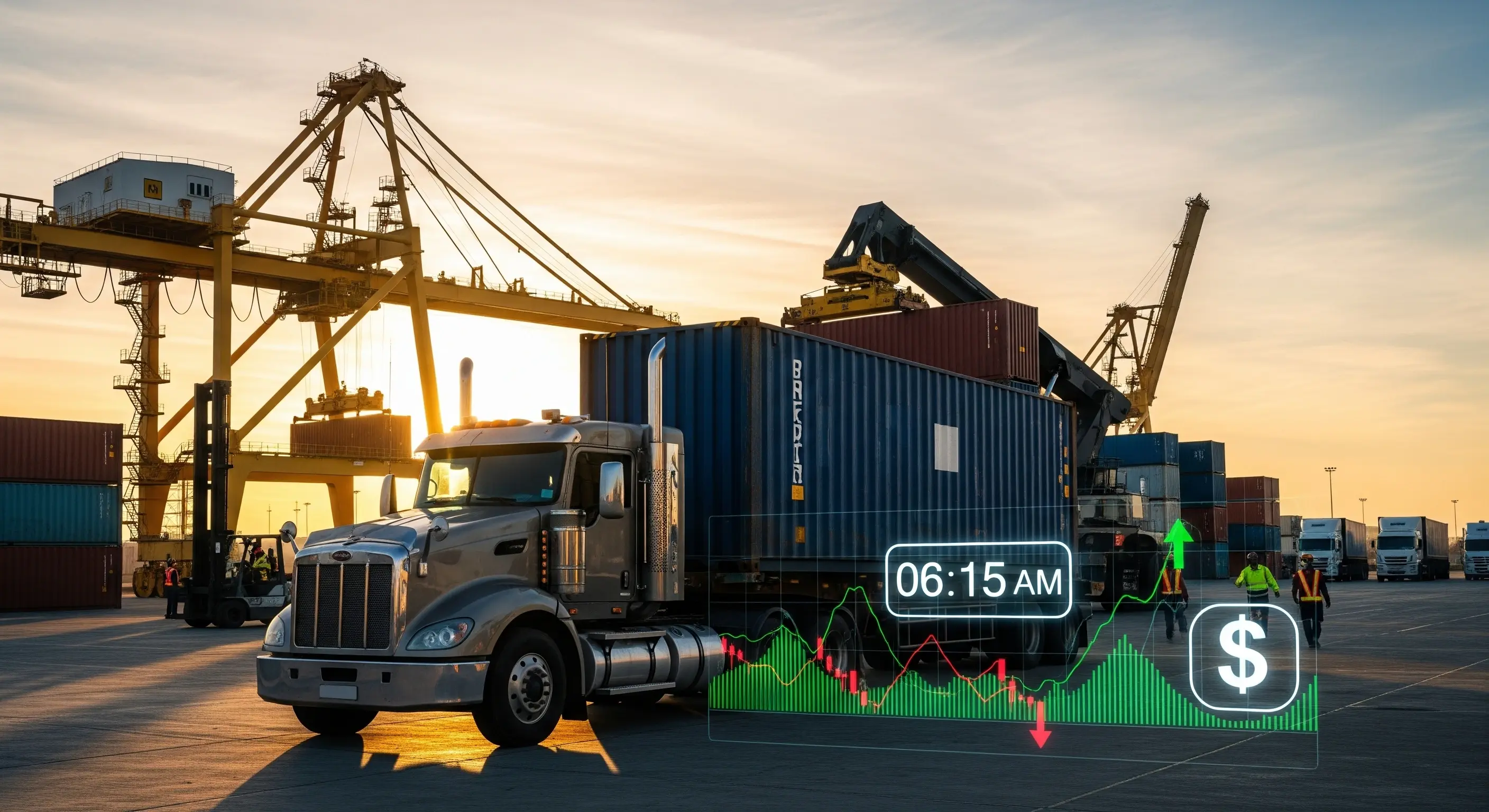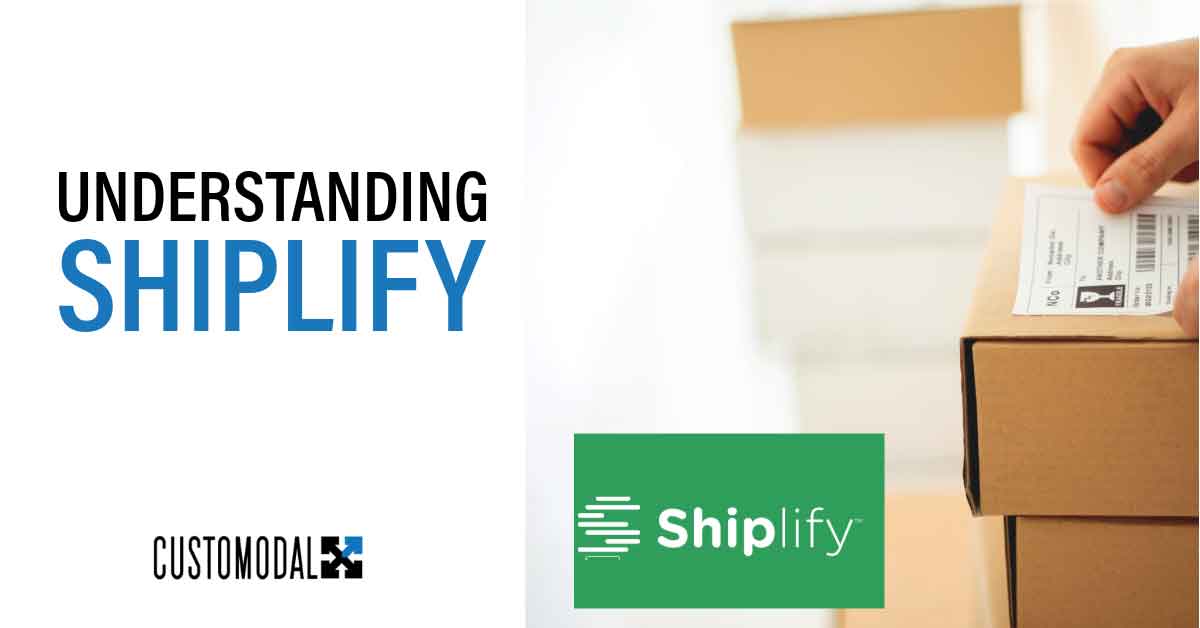
It's easy to get caught up in the number on the initial quote. You see a low rate and think you've found the best possible deal. But what if that initial rate is just the tip of the iceberg? What if the total freight cost is hidden in a series of hidden fees, inefficiencies, and logistical headaches that come later?
Shipping is a complex process with many moving parts. A freight broker's value isn't just finding a truck and getting a quote, but acting as a strategic partner who can manage the entire process to reduce your long-term expenses. This is where modern solutions, specifically digital freight management (DFM) platforms, are changing the game. Shippers can gain unprecedented control and visibility by moving beyond traditional methods and embracing technology, ultimately saving time and money. Below, we'll outline the factors that make up your total freight cost and how a forward-thinking freight partner can help you manage and reduce it.
Deconstructing the Total Freight Cost: It's More Than Just the Base Rate
Before we can talk about saving money, we need to understand where that money is going. The final invoice for a shipment is rarely just a single number. It's a sum of several components, each of which can be affected by everything from market conditions to human error.
The most obvious component is the base rate. This is the cost for the physical transportation of the freight from point A to point B. Most people focus on this when they're initially looking for a carrier.
However, the real surprise often comes from accessorial charges. These are additional fees that are added to the base rate for services or circumstances that were not included in the original quote. Common examples include:
-
Fuel Surcharges: Fluctuating fuel costs are passed on to the shipper.
-
Detention and Layover Fees: If a driver is delayed at a pickup or delivery point beyond a pre-agreed-upon time, these fees compensate them for the lost time. For example, a shipper who doesn't have their goods ready when the driver arrives could face significant charges.
-
Liftgate Services: If a truck requires a liftgate to load or unload freight, which was not noted in the original order, it will be added to the final bill.
-
Re-delivery Charges: The carrier will charge for a second attempt if a delivery attempt fails because the consignee was not ready.
These costs are often unavoidable in traditional shipping but can be minimized or eliminated with the right partnership and technology. A well-managed process, supported by technology, ensures all details are accurate from the start and that all parties are prepared, helping to reduce the number of costly surprises.
The Freight Broker's Evolving Role: From Middleman to Strategic Partner
Historically, the role of a freight broker was often seen as simple: find a truck, book it, and send a bill. However, in today's complex supply chain, that perspective is outdated. A modern freight broker is a strategic partner whose expertise and network are invaluable.
Their compensation isn't a visible "fee" tacked on at the end; it's a built-in margin that reflects their ability to buy transportation at a competitive rate and manage the logistics on your behalf. The goal isn't to haggle over this margin, but to ensure the final price is competitive and the service provided prevents the accumulation of those unforeseen costs we just discussed.
A good broker leverages their market intelligence and relationships to find the best carrier for your needs, even in tight market conditions. This is where their value truly shines. They can help you navigate the complexities of carrier vetting, insurance, and regulatory compliance, ensuring your freight moves smoothly and without risk. This proactive approach saves you from a poorly managed shipment's financial and operational fallout.
The Digital Revolution: How DFM Reduces Your Total Freight Cost
The most significant change in the logistics industry has been the rise of technology, specifically Digital Freight Management (DFM) platforms. DFM platforms are not just simple software; they are comprehensive tools that give shippers a new level of control and insight into their supply chain.
Visibility in Real-time
This is one of the most significant benefits of DFM. No time or effort is wasted on emails and phone calls to track a shipment. Instead, a DFM platform provides live updates from when a truck is booked to when the freight is delivered. This transparency prevents costly delays and allows for better planning. According to analyses from leading industry consultants like McKinsey & Company, a lack of visibility can increase logistics costs by as much as 10-15%. Knowing exactly where your freight is, you can alert your customers, prepare for its arrival, and avoid the detention fees from unprepared docks.
Automated Rate Shopping
DFM also provides a powerful tool for automated rate shopping. Instead of manually calling multiple carriers for quotes, a DFM platform can instantly compare rates from a vast network of vetted carriers. This ensures you're always getting a competitive price without the time and effort of manual negotiation. The data from these platforms provides a clear picture of market rates, empowering you to make smarter decisions.
Data and Analytics
Another key feature is data and analytics. DFM platforms collect and analyze data from on-time performance to cost per mile. This insight allows shippers to identify trends, optimize their lanes, and better forecast their shipping needs. For example, a DFM platform might reveal that a particular lane consistently sees higher rates during a specific time of year. With this knowledge, you could adjust your shipping schedule or explore consolidating shipments to reduce your freight cost.
The Art of the Relationship: Getting the Best Total Cost
While technology is crucial, the human element still matters. Negotiating for better rates isn't about demanding a lower "fee" but building a strong, mutually beneficial relationship with your freight partner. When you partner with a broker, you can earn better service and rates by becoming a "shipper of choice."
This means:
-
Providing accurate and complete information on your freight. Nothing frustrates a carrier more than showing up to a pickup to find incorrect weight or dimensions, which can lead to re-quotes and delays.
-
Being flexible with pickup and delivery times when possible.
-
Offering a consistent and reliable business. A broker is more likely to give you a great rate when they know they can rely on your partnership for the long term.
A strong relationship, combined with the efficiency of a DFM platform, creates a powerful synergy. Your broker can leverage their expertise to find the best rates, and the technology ensures the process is executed flawlessly, minimizing the risk of costly errors and unexpected fees.
The Bottom Line: Partnering for a Smarter, More Efficient Future
Shipping freight doesn't have to be a confusing, costly process filled with surprises. By shifting your focus from the initial quote to the total freight cost, you can better evaluate the true value of your logistics partners. A modern freight broker is more than a go-between; they are a strategic asset equipped with powerful digital freight management tools that streamline operations, provide crucial visibility, and ultimately save you money.
The future of freight is about innovative partnerships and leveraging technology to gain a competitive edge.
By partnering with us, you gain:
-
Streamlined decision-making through our technology tools, including an intuitive TMS and quoting tool, simplifies the comparison of options and streamlines booking.
-
Valuable insights into market trends and expert guidance to effectively navigate fluctuating freight rates.
-
Access to a vast network of reliable carriers and competitive rates, ensuring optimal choices for every shipment.
-
Assistance with TMS implementation and leveraging data for continuous logistics cost optimization.
-
Expertise in facilitating freight consolidation and route optimization to maximize efficiency and minimize expenses.
-
Thorough freight invoice auditing services to ensure billing accuracy and recover potential overpayments.
At Customodal, we are committed to helping our clients navigate this new landscape. Our digital freight management solutions provide the visibility, efficiency, and market intelligence you need to optimize your total freight costs and focus on what you do best—running your business.




